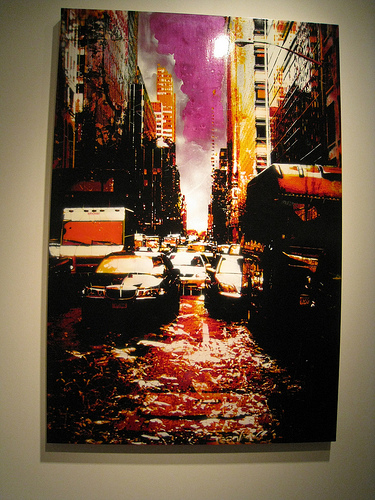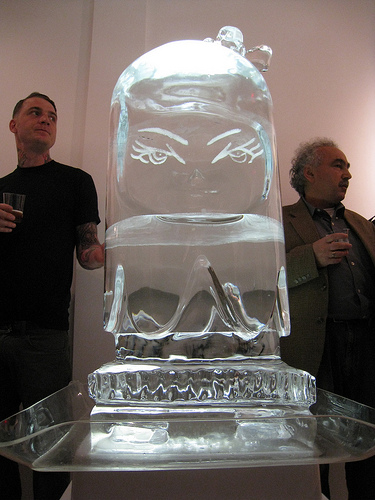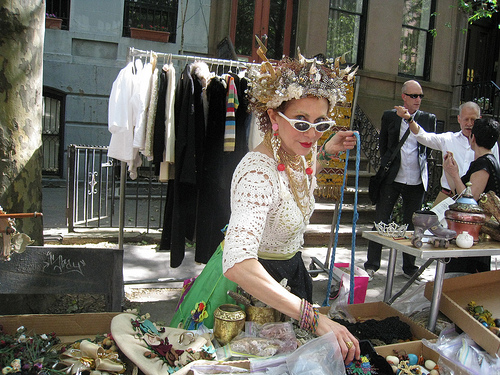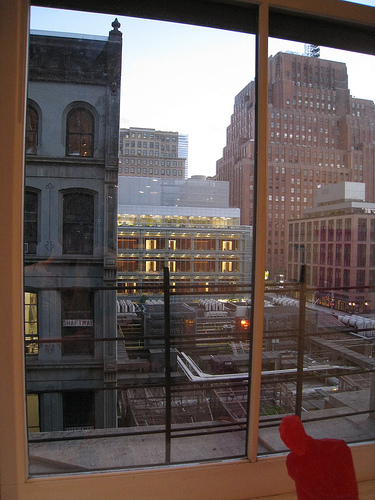I recently attended a Diversity Residency offered by my college. It was a weekend of exploration into the ways in which the landscape of our country has changed in response to immigration from an ever increasing number of countries. Be it for economic opportunity, political freedom, or to join family members already here, the United States has become host or home to new racial and ethnic groups in unprecedented numbers over the last decade alone. The meaning of what it is to be an American is changing even as you read this.
The residency workshops addressed many aspects of diversity such as gender issues, the distribution of power, people with disabilities, and the expression of diversity in literature and art. But the elephant in the room was clearly race. This is where America has drawn its line right from the beginning. From childhood on, our history books tell tales of brave explorers sent forth by adventurous monarchs to discover new worlds; of pioneering men and women enduring treacherous journeys to settle the West; of our nation’s founders risking life and limb to ensure prosperity, security, and justice for all. Nowhere did we learn of the rich and harmonious life of the Native Americans wiped out by all this adventure. In a 1995 biography, John Wayne was quoted as saying, “I don’t feel we did wrong in taking this great country away from them. There were great numbers of people who needed new land, and the Indians were selfishly trying to keep it for themselves.” Or just survive without being obliterated.
Slavery followed early American expansion and we all know how that turned out. The Harlem Renaissance of the ‘20s and ‘30s featured brilliantly talented black musicians and singers who performed for white audiences in clubs they themselves could not get served a drink in. In the ‘50s and ‘60s the terms “block busters” and “white flight” referred to the migration of blacks into primarily white neighborhoods causing the residents to flee further into the suburbs. Early reports on the 2010 census say the results will show that for the first time, more African-Americans live in the suburbs than in core cities. The 2000 census showed that fact to already be true of Hispanics and Asians.
Acceptance isn’t enough. It needs to be tempered with sensitivity, awareness, and a willingness to engage. The lexicon is always changing and it’s easy to insult out of ignorance. Hispanic, Latino, Spanish, Puerto Rican, Mexican – every ethnic group no matter how they refer to themselves has an individual pride in its own heritage just as everyone’s ancestors did, no matter how long you’ve been here or where your forefathers came from. Ellis Island tells powerful stories. We repeat them with pride, just as the American-born children of today’s immigrants will repeat theirs.
Most of the people I knew from my neighborhood are long gone, replaced by others who look nothing like them. They wear burkhas, saris, ethnic prints. They speak a panorama of languages. And like all neighbors, they smile, they wave, they apologize if their children ride their bikes onto my lawn. They pick up after their dogs or they don’t. Nothing really new; nothing really so different.
I didn’t get my customary A on the residency paper. It was too personally reflective and didn’t reference the required text enough. Perhaps because I was too busy being personally amazed at how much I had to learn and did learn as a result of my studies. It doesn’t have to be hard to accept that the town you grew up in is now shared by people who seem foreign in their beliefs, customs, and practices. They are foreign. For now. The easy thing to remember is that unless your name is Eaglefeather or something like it, at one time we were ALL foreigners.
Daughter’s Fotos visit art galleries, street fairs, and city views




